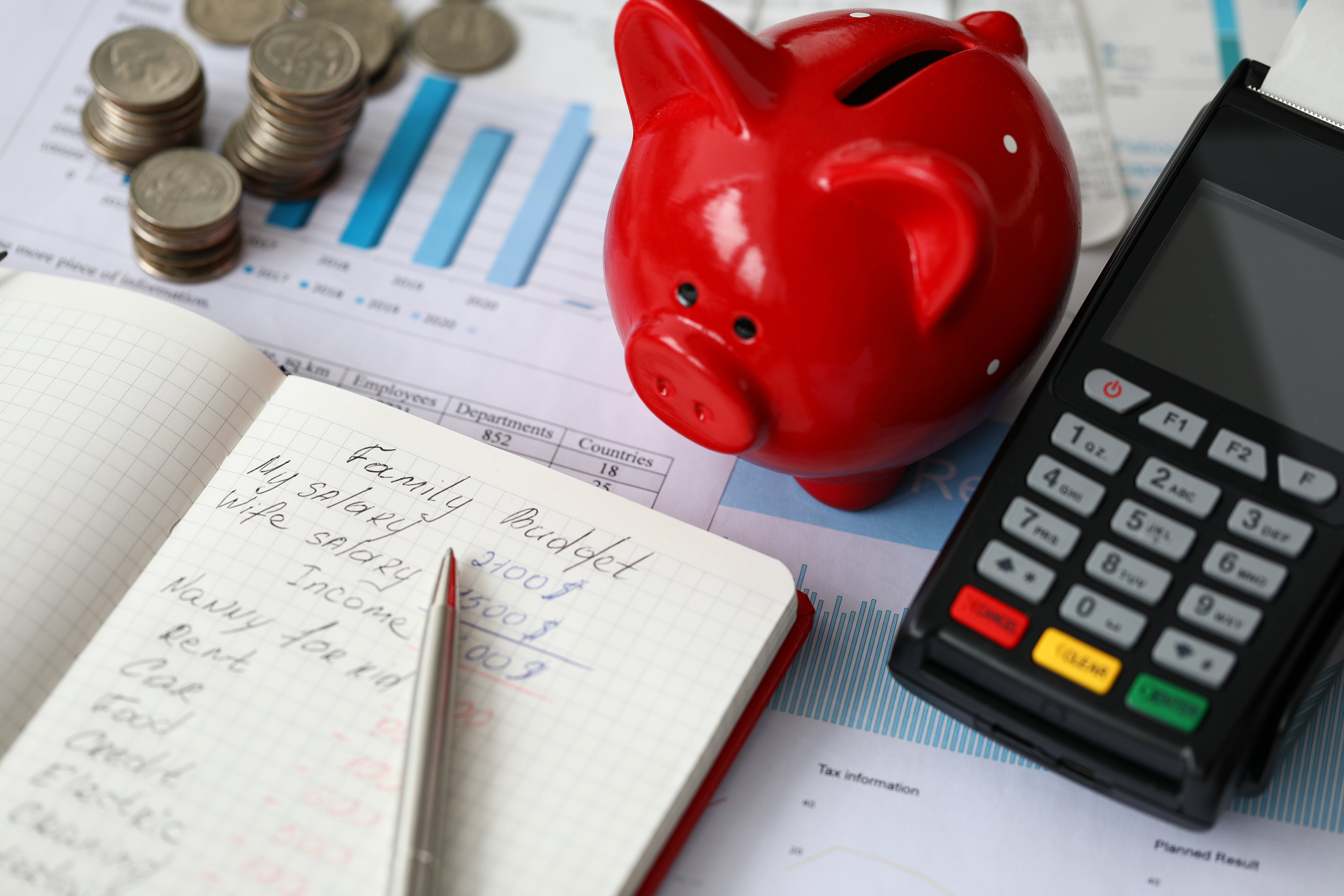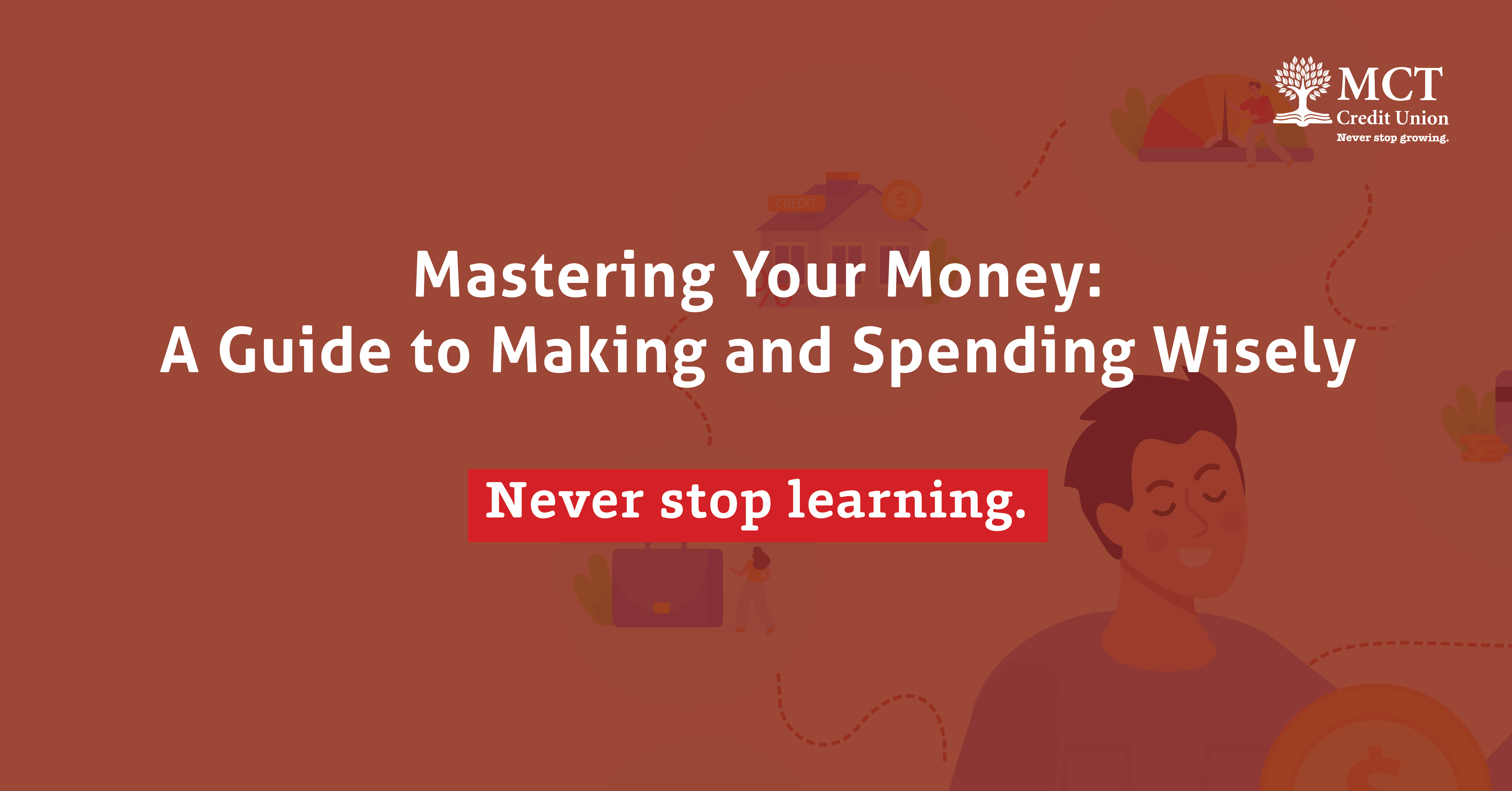Let's talk about the moolah! Making and spending money is a crucial aspect of being financially responsible.
Managing your money requires figuring out how much income you have coming in and how you spend it going out. The money coming in is your income, and the money going out is your expenses. You can compare your income and expenses to help create a plan for how to spend in the future, also known as a budget.
Sources of Income
Money, money, money! It's like a rollercoaster, always changing. Income can come from various sources like a fancy salary, government benefits (ah, the sweet Social Security), and those lucky investments. But hold your horses, because income can be as variable as a mood swing. That's why budgets are like clay, always ready to be molded and changed.
Expenses
Just as fast as income arrives, money goes back out to pay for expenses. Expenses can also grow over time to eventually include housing, utilities, groceries, phone, internet, transportation—and that’s just basic monthly expenses. There’s also insurance, healthcare, credit card bills, and clothing, among countless other expenses that are paid with income.
On top of covering your bills, it's essential to factor in other expenses when creating your spending plan. You'll want to set aside money for building up your savings, growing your investment portfolio, and preparing for retirement. After all, it's never too early to start planning for the future!
There are two types of expenses that are important to your budget. The first is fixed expenses that stay the same each month. These are expenses like housing, a phone bill, and car payments. The other category is variable expenses. These expenses can change from month to month and you tend to have more control over them. Entertainment, fast food, and hair products are examples of variable expenses.

The Numbers in Black and White
Let's break it down, shall we? Understanding your monthly income and expenses can be as simple as:
- Recording your monthly income.
- Listing your fixed monthly expenses.
- Compiling a list of your variable monthly expenses.
- Comparing what’s coming in with what’s going out.
Not sure where to start with your own budget? Check out our Budget Calculator here!
Oh boy, if you don't have enough income or you're spending more than you have, your cash flow goes from positive to negative. And let me tell you, that can make life a whole lot harder. Paying bills, getting loans, and buying the things you want all become a struggle. You might even find yourself relying on credit cards or debt just to get by. Yikes!
But hey, let's face it, turning that negative cash flow into a positive one is the key to living the good life and paving the way for a successful financial future. Of course, life happens and sometimes those unexpected expenses pop up out of nowhere. If you find yourself in a pinch and have to borrow money or rely on a credit card, tighten those purse strings and cut back on other expenses as much as possible to pay back what you owe in a flash.
So, here's the deal. If you really want to balance that budget of yours, it's time to get real about cutting back. Take a good hard look at those variable expenses that are more of a luxury than a necessity. Yep, you guessed it, those are the ones that need to go first.
Another good option is to find other sources of income. This could be a part-time job, selling crafts, or finding neighbors who need yard work done. It's generally harder to find extra income than to cut expenses, but for some people, it’s the perfect solution.
Once your cash flow is in the green, it's a smart move to squirrel away a little each month for any surprise expenses that may come your way.
Understanding your income and expenses will save you from a lot of financial problems in the future. A balanced budget can help you feel confident that you’ll have the money you need when you need it.
We can help you determine your net worth if you click the link here!




